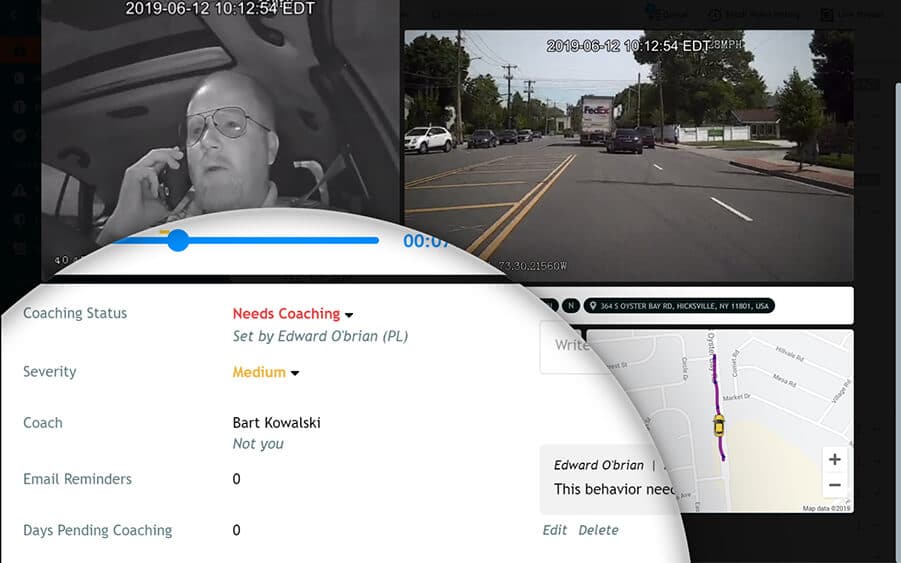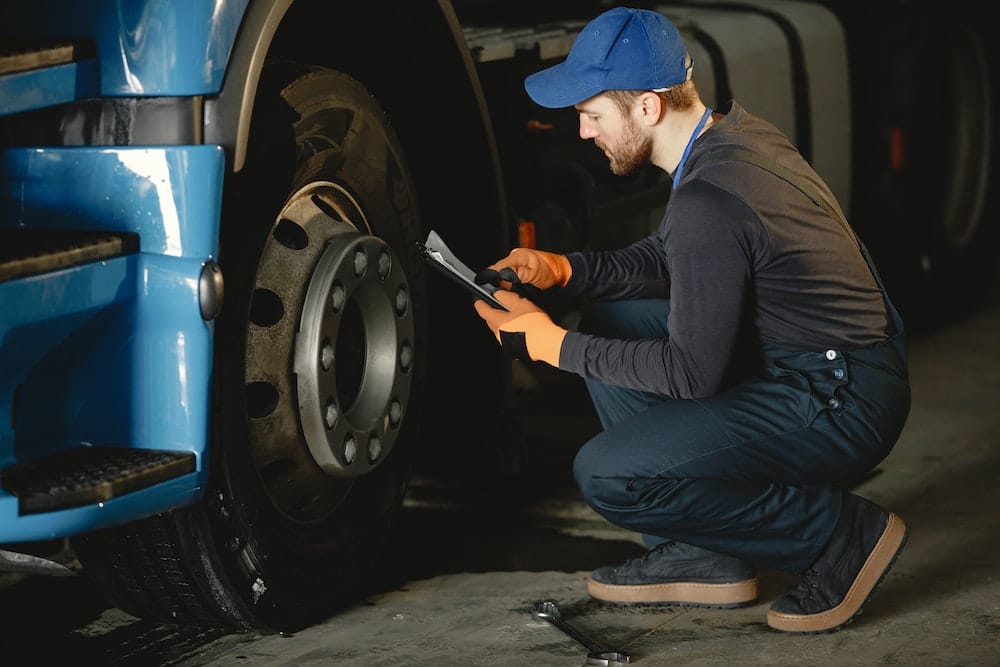
Highly effective fleet managers are hard to find.
If you want to be one of those few, we’ve compiled this list of eight fleet manager habits that can help you stand out and become a fleet management expert.
Want to encourage safe habits for your drivers? Or stay on top of industry trends? We’ve got you covered with these foolproof tips and tricks.
Let’s get started.

This may seem obvious, but learning how to keep your fleet running safely is extremely important. Here are three ways to maintain and improve safety:
One of the easiest ways to become a better leader is to communicate your expectations with your drivers. If you have a vision for your fleet, the best way to make changes is to share it with your team and hold them accountable
This can also mean setting goals with incentives to help your drivers put in their best performance when you’re not around.
Finding what works best for you and your drivers can take time, but having an open and honest line of communication can help your fleet run at its best.
Safe driving and great driver performance can help you cut back on costs and improve fleet operations. Having your drivers practice safe and efficient driving skills can also improve fuel efficiency and reduce fuel costs.
By learning how to predict risks and getting ahead of potential safety issues, you can avoid accidents, vehicle repair costs, medical bills, higher insurance premiums, and overspending on legal fees.
Other solutions like AI driver cameras that detect unsafe driving habits and automated driver training apps can go a long way in keeping your fleet running smoothly.
Running a safe fleet starts with good drivers. It’s a matter of finding experienced drivers, a team that is on board with your expectations, and more importantly, ones who practice safety even when you’re not watching.
Not only do you want to recruit talented and experienced drivers that practice safe habits, but you also want to make sure you can keep them. That could mean incentives, established guidelines, and clear and open communication.

Embrace change. No matter what industry you’re in, learning how to adapt to changes and upcoming trends will make you an excellent leader.
Whether it’s keeping up on fleet sustainability, learning what new fleet software is available to improve your fleet, or new regulations being rolled out; today’s fleet managers require adaptability to face changes in the fleet industry.
Learn from your mistakes.
How a fleet manager handles challenges and failure can directly affect fleet performance. No leader is 100% perfect, even with years of experience.
That’s why it’s important to ask your team for their feedback, expectations, and goals to create transparent established guidelines.
Don’t be afraid to ask and reach out to your team for check-ins. It can be the key to leading your team to success.
Being a fleet manager means ensuring internal operations continue running smoothly for your clients. But sometimes that doesn’t always happen.
Knowing how to respond under pressure and taking the necessary action needed is a key component to becoming a highly effective fleet manager. And formulating a plan in the moment is rarely the best call.
So make sure you’ve got a detailed plan in place for situations like vehicle breakdowns, accidents, late shipments, and more.
Knowing those plans ahead of time will make decision-making in critical moments that much easier.

Ready to take a major leap in your fleet management? Implementing the right tools and software can make a drastic difference.
This could mean using a route optimizer, a more robust GPS fleet tracking solution, asset trackers, or automated driver coaching.
Got paper waste?
If you find yourself flooded with paperwork or scrambling to find documents, it’s time to go digital. With a digital DVIR, a mobile workforce management app, and electronic compliance reports, you can cut paper waste and help manage your fleet more effectively.

A successful vehicle maintenance program is always a good investment. You want to ensure routine fleet maintenance is both accessible and effortless.
Inspections, scheduling, and reporting all need to happen in an easy and effective manner for all members of your team to prevent safety hazards, poor vehicle performance, and downtime for fleet vehicles.
Furthermore, setting up reminders and fleet maintenance tracking can go a long way in making preventative maintenance and routine fleet vehicle maintenance painless.
Not only will it help make your fleet run smoothly, but it will also help you save money when it comes to major repairs for your vehicle.

Another aspect to navigate as a fleet manager is knowing when to replace your vehicles.
You might think to replace your vehicles when they run completely out of juice and no longer run at all. However, this can affect your fleet’s safety and potentially cost you more money in the long run.
Finding a consistent, balanced plan for your fleet replacement strategy will save you money and time and help your drivers perform better.
This can take some time to nail down and find the sweet spot, but we promise you it’s very much worth it.

The fleet industry is constantly changing. By keeping up with the trends, market, and the future of the industry, you can make the necessary changes for your fleet.
Stay up-to-date by joining an association, checking out industry podcasts, reading fleets news articles, and attending conferences to talk with other fleet managers.
Learning more about industry trends means you can later adopt them into your fleet management strategy, especially when it comes to new technologies.
Any step - big or small – you take toward optimizing and transforming your fleet strategy can make a positive impact.

As a fleet manager, you want to continuously update your knowledge and implement it into your fleet management strategy.
While researching on your own time can be a great way of staying up-to-date with industry trends, getting certifications and enrolling in programs can help dramatically expand your skillset.
Here are a few programs to help in becoming a more effective fleet manager:

One of the easiest and most effective ways to help your fleet be the most successful it can be is to have an actionable plan that states your goals.
If you don’t already analyze and set goals, you’re missing out on one of the most effective ways to improve your fleet.
Set goals that stretch your team while also being within reach.
With challenging, attainable goals, you can push your team toward better fleet performance.
At Forward Thinking Systems, we recognize how vital fleet organizations are to our communities. That’s why aim to provide you with actionable steps to keep transforming your fleet and making it the best it can be.
Whether it’s to provide you with the solutions to optimize your fleet or help you learn the ins and outs of fleet management, we’re here to help.
A good fleet manager is someone who prioritizes fleet safety, stays ahead of industry trends, optimizes routine maintenance, and establishes clear guidelines and expectations for the entire fleet.
This will look different for most fleet managers, but one of the easiest ways to effectively manage your fleet is to invest in fleet management software.
This can help improve maintenance, driver behavior, fleet monitoring, and routing and dispatching. It also makes generating reports, vehicle data analysis, lowering fuel usage, and simplifying other complex fleet operations easier.
Implementing clear safety expectations and guidelines can help your drivers feel safer and happier and also reduce the cost of major repairs.
Effective fleet managers also implement preventative maintenance, a vehicle replacement strategy, and driver behavior monitoring to further improve fleet safety.
Psssst… Want to see how our fleet management services can help you establish better fleet management habits and become a highly effective fleet manager?
Grab a free demo.
Do it.
Do it now.
Right down here. ⬇️

Recent Posts
Categories
Stay in Touch
Ready to make fleet management more manageable?